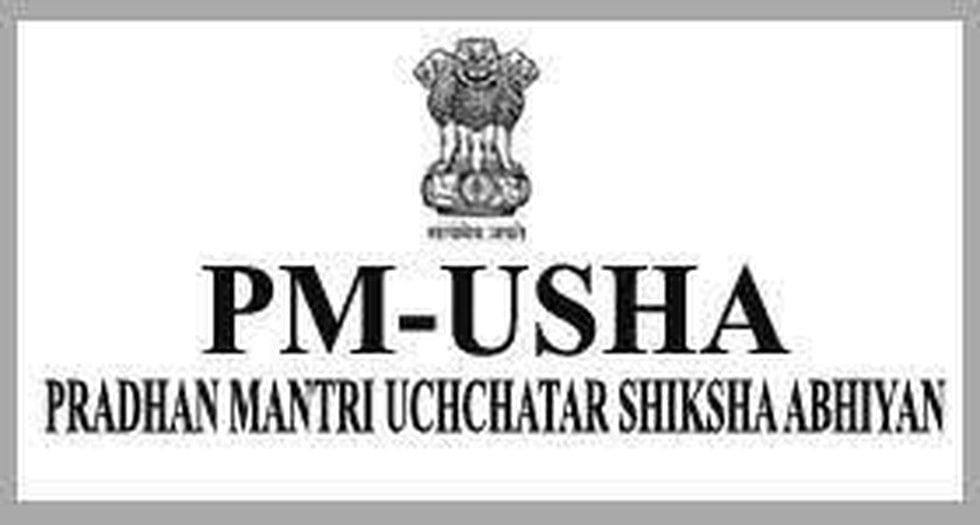Contentious criteria: On PM-USHA and cooperative federalism
The Centre must revisit the Pradhan Mantri Uchchatar Shiksha Abhiyan (PM-USHA) and take on board dissenting States
By mandating States and Union Territories to implement the National Education Policy (NEP) 2020 and adopt contentious academic criteria in order to avail funds under the Pradhan Mantri Uchchatar Shiksha Abhiyan (PM-USHA), the Ministry of Education (MoE) appears to have made the central scheme exclusivist. The guidelines for the scheme — an improvised version of the Rashtriya Uchchatar Shiksha Abhiyan (RUSA 1 and 2) to ensure increased access, equity and excellence in the State higher education system with central funding — were released in June. Only 22 States and Union Territories have joined the PM-USHA, which requires a memorandum of understanding to be signed between the State and the Department of Higher Education (MoE). West Bengal, Tamil Nadu and Kerala are among 14 States and Union Territories which have refused to get on board. Apart from embracing the NEP 2020, the memorandum of understanding, includes, inter alia, commitment from States on adopting guidelines for the National Credit Framework and Choice Based Credit System for Four Year Undergraduate Programme. Without agreeing to these conditions, States cannot avail of a share in the funds, an outlay of ₹12,926.10 crore between 2023-24 and 2025-26, earmarked to improve State-run higher education. This despite the fact that 40% of funding has to be borne by the respective State governments.
Over the past several years, a few States have strongly opposed NEP 2020, both at the draft and implementation stages. Some such as Tamil Nadu have initiated measures to draft their own State Education Policy. There are demands to restore ‘education’ to the State List from the Concurrent List, where it was moved without debate during the Emergency. Against this backdrop, it would appear that the conditions for the PM-USHA have been tailored to impose NEP 2020 through the backdoor. The scheme also requires adoption of the multiple entry and exit options in degree programmes and National Higher Education Qualifications Framework guidelines. This, when academic stakeholders and administrators have expressed serious concerns about the multiple entry and exit options possibly triggering more dropouts from the higher education system. The emphasis on a four-year undergraduate programme has also evoked concerns as to whether socially and economically backward students could afford the money and the time, to pursue an extra year in college to acquire a degree. Besides, even a State supporting the NEP 2020, Meghalaya, has called for a revisit of the funding criteria and an increase in the number of beneficiary units, since its State university is in the initial stage of being operational. Under these circumstances, it would be prudent for the Ministry of Education to negotiate better terms with the dissenting States, respecting the essence of cooperative federalism.

-
Contentious (adjective) – debatable, arguable, touchy, litigious
विवादास्पद
-
Cooperative (adjective) –c ollaborative, joint, combined, team-based
सहयोगी
-
Federalism (noun) – a system of government in which power is divided between a central authority and various constituent units of the country
संघवाद
-
Dissenting (adjective) –disagreeing, differing, opposing, non-conforming
असहमत
-
Mandate (verb) – Mandate, command, instruct, direct, order
आदेश देना
-
In order to (phrase) – To, for the purpose of, so as to, in an effort to
ताकि
-
Avail (verb) – Utilize, use, take advantage of, exploit, benefit from
उपयोग करना, लाभ लेना
-
Exclusivist (adjective) –elitist, discriminatory, cliquish, selective
विशेषाधिकारवादी
-
Improvised (adjective) – makeshift, spontaneous, extempore, off-the-cuff
अनयोजित
-
Memorandum of understanding (MoU) (noun) – Agreement, accord, contract, pact, treaty
समझौता ज्ञापन
-
Get on board (phrase) – Accept and participate with an idea or project.
स्वीकार करना
-
Embrace (verb) – accept, welcome, adopt, espouse
अपनाना
-
Inter alia (phrase) – Among other things
अन्य चीज़ों के बीच
-
Commitment (noun) – pledge, promise, assurance, vow
प्रतिबद्धता
-
Outlay (noun) – Expenditure, expense, spending, disbursement
खर्च
-
Earmark (verb) – Allocate, designate, set aside, reserve
विशेष रूप से आवंटित करना
-
State-run (adjective) – Government-operated, publicly-owned, state-owned, government-run
सरकारी
-
Bear (verb) – Carry, support, hold up, sustain, shoulder
सहन करना या उठाना
-
Restore (verb) – reinstate, return, bring back, reestablish
पुनः स्थापित करना
-
Concurrent list (noun) – A list of items (subjects) on which both the State and the Union Governments can make laws
समवर्ती सूची
-
Against the backdrop (phrase) – In the context of, in relation to, in light of
के संदर्भ में
-
Tailor (verb) – Adapt, modify, customize, shape, mold
अनुकूल बनाना
-
Impose (verb) – Enforce, inflict, foist, levy, exact
थोपना
-
Through the backdoor (phrase) – Secretly, surreptitiously, covertly, underhandedly, stealthily
चुपके से
-
Adoption (noun) – Acceptance, endorsement, embrace, espousal, taking on
स्वीकृति
-
Stakeholder (noun) – Interested party, shareholder, investor, holder, participant
हितधारक
-
Trigger (verb) – Initiate, spark, provoke, activate, stimulate
प्रेरित करना
-
Dropout (noun) – Quitter, defector, deserter, leaver
स्कूल छोड़ देने वाला
-
Emphasis (noun) – Importance, stress, accent, significance, prominence
महत्व
-
Evoke (verb) – Elicit, induce, arouse, bring forth, conjure up
पैदा करना
-
Pursue (verb) – engage in (an activity or course of action).
करना
-
Call for (phrase) – Require, demand, necessitate, need
मांग करना
-
Revisit (noun) – Reexamination, reconsideration, reassessment, rethink
पुनर्विचार
-
Prudent (adjective) – Wise, sensible, judicious, thoughtful, sagacious
विवेकी
-
Negotiate (verb) – Discuss, talk, parley, confer, bargain
समझौता करना
-
Terms (noun) – Conditions, stipulations, provisions, clauses, requirements
शर्तें
-Essence (noun) – Core, heart, substance, quintessence, spirit
सार
-
Understand, consider, take into account, acknowledge, accept
समझना या स्वीकार करना